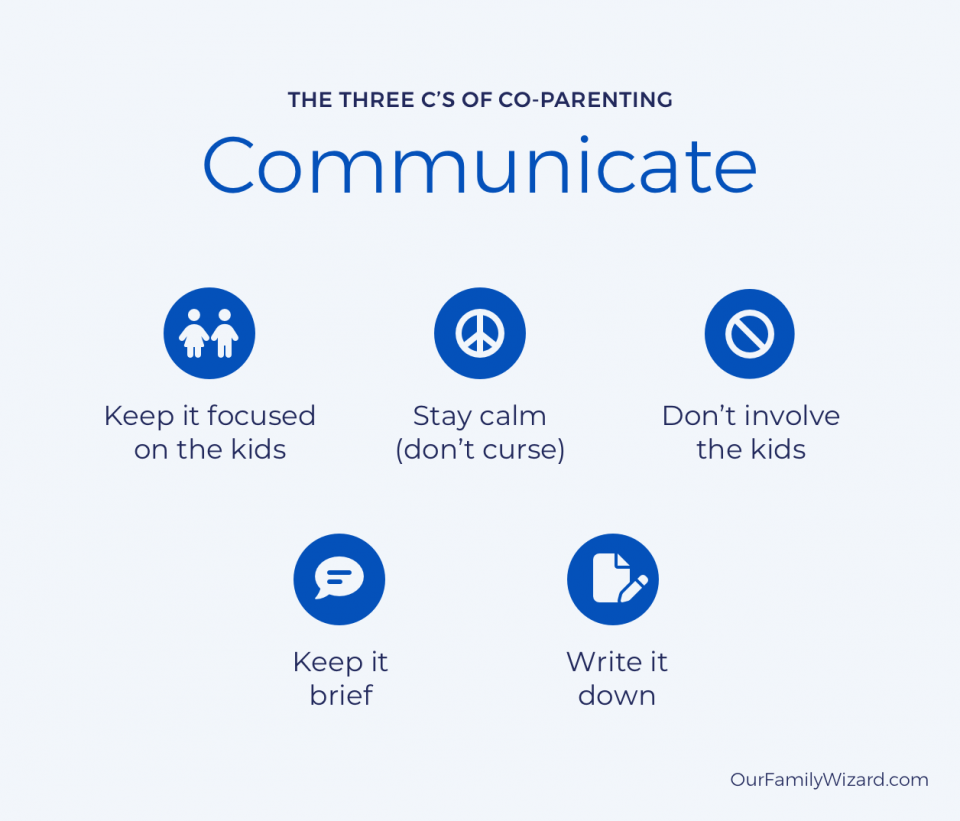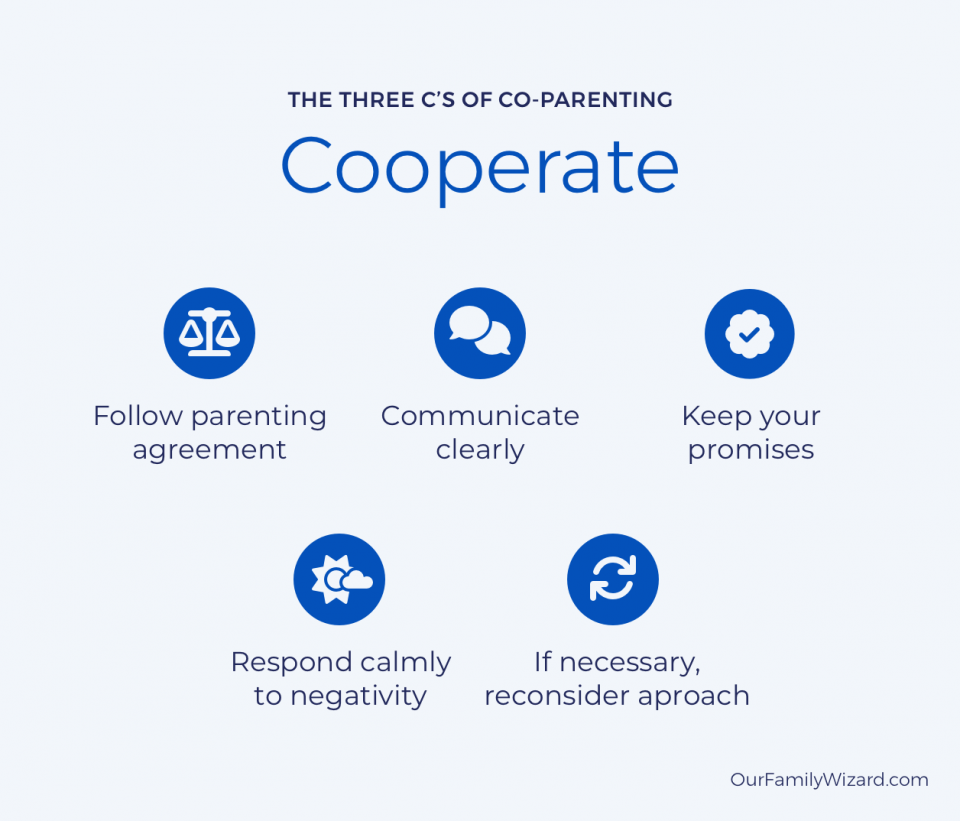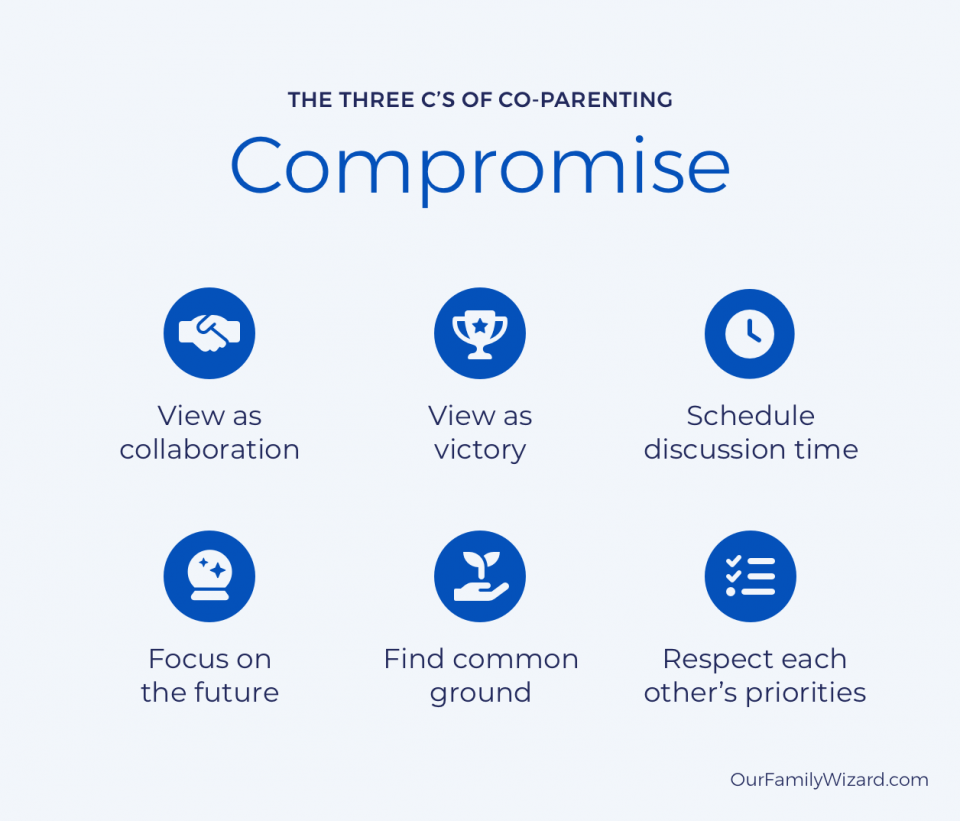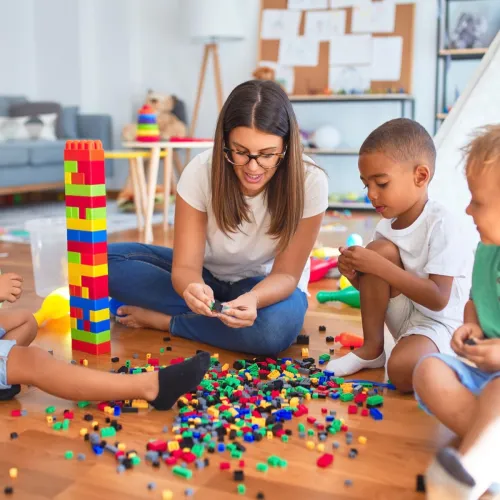How to Communicate, Cooperate, and Compromise as a Co-Parent
A divorce or separation is one of the greatest challenges a child can face—and an enormous number of children face it.
A highly contentious and emotional process, divorce or separation is often filled with anger, hurt, resentment, and sadness. These feelings make it nearly impossible to keep your emotions in check.
But managing this conflict is crucial. If the parents let their conflict run rampant, then their children can experience serious, permanent harm.
Thankfully, managing the conflict is absolutely doable. If you learn these skills, approaches, and techniques, you can better shield your children from the fallout of divorce.

My perspective as a child advocate
I consider myself a deeply committed and dedicated advocate for children and families. For the past 18 years, I have served as a court-appointed guardian ad litem or child welfare advocate and attorney for the child. In this role, I represent the best interests of the child in a custody action and make specific recommendations to the court.
Over the years, I have seen first-hand how co-parents’ actions directly impact their children.
How does divorce affect children—now and throughout their lives?
Kaiser Permanente and the Centers for Disease Control and Prevention conducted a study on Adverse Childhood Experiences (“ACEs”). They found a direct connection between exposure to early trauma, and negative effects on mental and physical health later in life.
The list of ACEs includes one most parents don’t expect: divorce or separation.
Significant amounts of toxic stress can cause serious physical changes to developing bodies of children, including their:
- Brains
- Immune systems
- Cardiovascular systems
- Hormonal balances
Even worse, these effects can go beyond physical health. Exposure to adversity during childhood greatly increases the risk of:
- Mental health issues
- Behavioral problems
- Substance abuse
- Poor academic performance
Good news: The harm is preventable
There’s some good news to go along with these scary dangers. It’s not the divorce or separation itself that’s harmful to children—it’s the unmanaged conflict, plus a failure to meet each child’s needs during and after the process.
The Three C’s of Co-Parenting: Communicate, Cooperate, Compromise
The three C’s of Co-Parenting—Communication, Cooperation, and Compromise—place children in the center instead of making them collateral damage. Through these skills, families can protect children from negative health outcomes. They can even help children learn resilience through the divorce experience.

#1: Communicate
After a divorce or separation, communication is difficult. But healthy communication means you and your co-parent can work together for your children’s benefit. Without it, you can’t. If you develop healthy communication habits now, then your entire co-parenting journey will be easier.
Keep it focused.
To make it work—and to make it less painful—all co-parenting communication should be child-centered. Don’t bring up other issues from your past relationship. Just talk about your child.
Stay calm.
Don’t let co-parenting conflict creep into your child-focused conversations. Even though you’re not in the same relationship, you’re still on the same team.
If your negative emotions (or your co-parent’s) start to take over, it can become very difficult to focus on the kids. There’s never a good reason to address anything personal, because you no longer share a personal life—you just share children. Avoid cursing, too. It just ramps up the tension.
Don’t involve the children.
Co-parents should never use their children as messengers, no matter how old they are or how insignificant the message is. It can put tremendous pressure on kids, creating stress and anxiety for them.
Children should never even glimpse court filings or litigation materials. They don’t need to be involved in adult concerns and responsibilities.
Keep it brief.
The more concise, the better. It helps you stay focused on practical details and not get derailed by emotions.
Not every communication requires a response. Also, it’s just fine to sit on a reply before sending it. That can help you avoid sending emotional messages.
Write it down.
It’s best practice to keep all your co-parenting communications in writing. Then there’s a very clear track record. It gets rid of the arguments about “who said what, when?”
If everything is written, then it’s easier to bring an organized record to court or mediation. Try an app like OurFamilyWizard to keep all your co-parenting messages in the same secure place (and download records easily). First-viewed timestamps get rid of even more arguments (“I didn’t see that message!”).

#2: Cooperate
When your co-parent won’t cooperate, it’s easy to get frustrated. It can also put children into unhealthy situations if not addressed carefully.
Through respecting each other and cooperating, co-parents show that the children come first—not just in theory, but in everyday life.
Follow the parenting agreement.
This is basic, but crucial. It forms the basis for all other cooperation. If you both know you can rely on your agreement or order, then you will feel more comfortable and confident.
Communicate clearly.
I know, we already covered communication—but you really can’t cooperate without discussing the issues on which you’re cooperating.
Keep your promises.
If you agreed to let your child play Little League, then take him to Little League practice. This is the type of cooperation that makes sure your kids live a stable, predictable life.
Respond to negativity calmly.
It’s easy to push buttons and respond to pettiness with pettiness. But responding to conflict negatively just amps it up. To minimize conflict, respond calmly and briefly in a matter-of-fact tone, then move on (and ignore any negative responses).
Even if your co-parent isn’t cooperating, this type of response sets a cooperative tone. If it’s consistent, it might change the tone of your relationship.
But how do you react to an uncooperative co-parent?
You can’t control your co-parent. In some cases, you can influence them through conflict resolution techniques—but sometimes nothing you do seems to have an effect. How can you cope when your co-parent is uncooperative?
Consider parallel parenting.
With parallel parenting, you each parent separately rather than coordinating. When your children are with you, you have full say over what they do and how they live. (And vice versa when they’re with your co-parent.)
This is the opposite of the three C’s, but it’s best for some families. If the three C’s aren’t working for you at all, consider parallel parenting. It lets you keep communication to an absolute minimum. This helps prevent conflict and might make your life feel simpler and less pressured.
Focus on you and your children.
Don’t waste too much energy on counteracting your co-parent—in other words, don’t let their negativity take over your side of co-parenting, too.
Ask yourself if the behavior goes past “uncooperative.”
If your co-parent is breaking the terms of the parenting agreement, you might need to turn to the legal system. Co-parenting techniques aren’t generally powerful enough to change someone who is so set in their ways that they’re skirting the law.

#3: Compromise
To co-parent successfully, you have to work together, and not against each other. It is extremely difficult to problem-solve without compromise. If you want to reach a child-centered agreement or solution, compromise is the only way forward.
View compromise as collaboration.
Compromise means you’re both contributing by being flexible—rather than thinking you’re giving up something. This belief has to come from within. Compromise is one thing you can do to be your best self and best co-parent.
View compromise as a victory.
Compromise may not always be the first choice, but it allows both co-parents to come out ahead—because they both want what’s best for the child.
Compromise/compromise is really a win/win. Plus, it increases the likelihood of flexibility in the future.
Schedule a time for discussion.
If you have a plan, you can both prepare yourselves emotionally as well as prepping what you want to say. This works better than on-the-fly arguments that come up organically.
“Make requests instead of complaints.”
Rather than focusing on what your co-parent has done wrong in the past, focus on what you want them to do in the future. This helps eliminate blaming, which helps prevent defensiveness (which just ramps up the conflict).
Find common ground.
Maybe you want different things—but for the same reasons or for similar goals. Maybe you can see your co-parent’s view more clearly, or perhaps you can find a third option that meets those goals.
Respect each other’s priorities.
If something is very important to your co-parent and not a big deal to you, that’s a good place to compromise—and see if you can get your partner to bend on something that’s more important to you.

One simple way to improve your three C’s
A co-parenting app, like OurFamilyWizard, makes it much easier to communicate, cooperate, and compromise.
How to communicate on a co-parenting app
On OurFamilyWizard, all communication is automatically documented. It can’t be deleted or edited—after you send it, it’s permanently on the record.
This means there’s no more arguing about who said what, when. And no more arguing about whether your co-parent saw it.
This often leads to more respectful communications, knowing the record could show up in court or in an attorney’s hands. You can even connect with your attorney through OurFamilyWizard so they can monitor communications directly.
Plus, our ToneMeter tool helps you avoid language that could spark conflict.
How to cooperate on a co-parenting app
Cooperation is easier when you’re using a smooth, simple format. On OurFamilyWizard, you can create and view a parenting schedule to make sure you cooperate by following your order or agreement. To cooperate financially, you can easily reimburse expenses, with your established percentage split per category. To cooperate in many ways, you can communicate promptly and politely.
How to compromise on a co-parenting app
OurFamilyWizard makes it easy to meet in the middle. If your co-parent wants to change the schedule, you can give them the weekend they want, in exchange for some parenting time that you would like to have. Or whatever issue you need to discuss, you can talk about it calmly and politely in writing, and then refer to the compromise conclusion later.
Why not just use texts, emails, phone calls, and DMs?
Standard communication tools like texts, emails, phone calls, DMs, and PMs can be helpful—but they can also be altered, deleted, or blocked. A co-parenting tool like OurFamilyWizard guarantees that communication remains secure, it helps you keep your communication effective, streamlined, and focused on the children.
Our co-parenting tools empower you to engage with your co-parent through respectful and businesslike communication, to make sure the children are your #1 priority.
Bonus C’s: Co-parent confidently
If you understand and follow the three C’s of co-parenting (which is easier if you use a co-parenting app), then you can be confident that your children will feel secure and loved.




